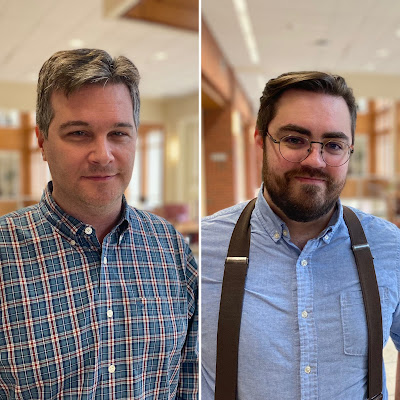University of Oklahoma Researcher Developing Novel Therapy for Alzheimer's Disease
Contact: Jana Smith, Director of
Strategic Communications for R&D
University of Oklahoma
405-325-1322 or jana.smith@ou.edu
Norman, Okla.—A University of Oklahoma researcher is developing a novel therapy for Alzheimer’s disease using “biopharmaceutical proteases” to attack the toxic plaque that builds up in the brain of an Alzheimer’s patient—an approach that he predicts will be lower in cost and higher in effectiveness than current therapies.
Peter J. Heinzelman, an associate professor in the Department of Chemical, Biological and Mechanical Engineering, recently received a $75,000 grant from the Oklahoma Center for the Advancement of Science and Technology to pursue this research, which includes the development of a library of biopharmaceutical proteases for public use.
Heinzelman’s previous research led to the idea that proteases, or proteins that degrade other proteins, would be more effective as a therapy for Alzheimer’s disease than existing approaches. The brain is surrounded by a barrier of cells that allows glucose to pass through but is resistant to drug molecules and therapeutic proteins.
By virtue of a single protease molecule able to degrade thousands of the plaque molecules, these proteases should be capable of delivering a catalytic benefit even if only small amounts pass through the cell barrier surrounding the brain.
“Digestive enzymes are promiscuous,” says Heinzelman. “We can create catalytic proteases that attack the beta-amyloid plaque that cause neurons in the brain to die. Current therapies use amyloid-binding antibodies that are created by the body or injected to get rid of the plaque, but these antibodies used to attack the problematic Abeta molecules can only bind one time and clear one Abeta molecule, then they are done.”
The delivery system is problematic, too. Heinzelman suggests an approach that addresses both therapeutic efficacy and delivery. He wants to re-engineer an existing technology to link proteases with “ferrying” antibodies that can encourage passage of the proteases from the circulation side across the brain cell barrier and into the brain tissue. This approach has been demonstrated in the laboratory.
Another aspect of the OCAST grant is the development of a library of proteases that will be made freely available and could become a powerful tool for the scientific community. Heinzelman is working with researchers from the University of Wisconsin-Madison and the Oklahoma Medical Research Foundation on this grant.
For more information about Peter J. Heinzelman, his research interests and projects, visit his website at http://www.ou.edu/coe/cbme/audience/People/faculty1/heinzelman.html.
Strategic Communications for R&D
University of Oklahoma
405-325-1322 or jana.smith@ou.edu
Norman, Okla.—A University of Oklahoma researcher is developing a novel therapy for Alzheimer’s disease using “biopharmaceutical proteases” to attack the toxic plaque that builds up in the brain of an Alzheimer’s patient—an approach that he predicts will be lower in cost and higher in effectiveness than current therapies.
Peter J. Heinzelman, an associate professor in the Department of Chemical, Biological and Mechanical Engineering, recently received a $75,000 grant from the Oklahoma Center for the Advancement of Science and Technology to pursue this research, which includes the development of a library of biopharmaceutical proteases for public use.
Heinzelman’s previous research led to the idea that proteases, or proteins that degrade other proteins, would be more effective as a therapy for Alzheimer’s disease than existing approaches. The brain is surrounded by a barrier of cells that allows glucose to pass through but is resistant to drug molecules and therapeutic proteins.
By virtue of a single protease molecule able to degrade thousands of the plaque molecules, these proteases should be capable of delivering a catalytic benefit even if only small amounts pass through the cell barrier surrounding the brain.
“Digestive enzymes are promiscuous,” says Heinzelman. “We can create catalytic proteases that attack the beta-amyloid plaque that cause neurons in the brain to die. Current therapies use amyloid-binding antibodies that are created by the body or injected to get rid of the plaque, but these antibodies used to attack the problematic Abeta molecules can only bind one time and clear one Abeta molecule, then they are done.”
The delivery system is problematic, too. Heinzelman suggests an approach that addresses both therapeutic efficacy and delivery. He wants to re-engineer an existing technology to link proteases with “ferrying” antibodies that can encourage passage of the proteases from the circulation side across the brain cell barrier and into the brain tissue. This approach has been demonstrated in the laboratory.
Another aspect of the OCAST grant is the development of a library of proteases that will be made freely available and could become a powerful tool for the scientific community. Heinzelman is working with researchers from the University of Wisconsin-Madison and the Oklahoma Medical Research Foundation on this grant.
For more information about Peter J. Heinzelman, his research interests and projects, visit his website at http://www.ou.edu/coe/cbme/audience/People/faculty1/heinzelman.html.


